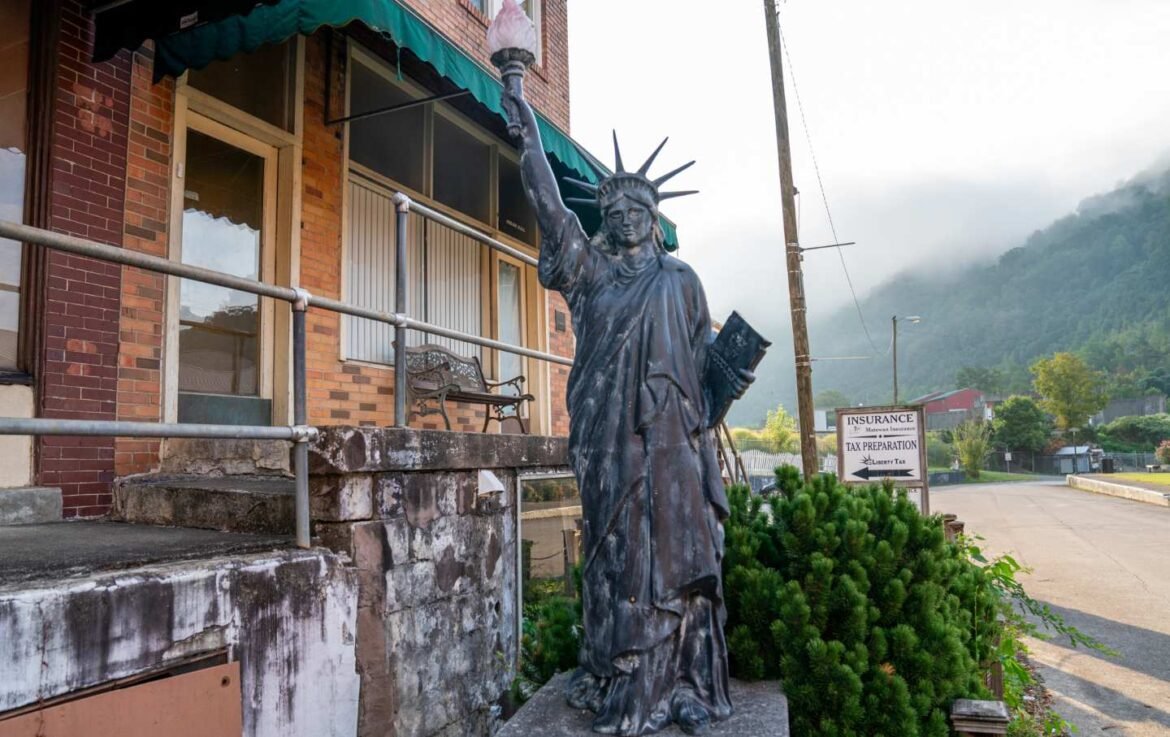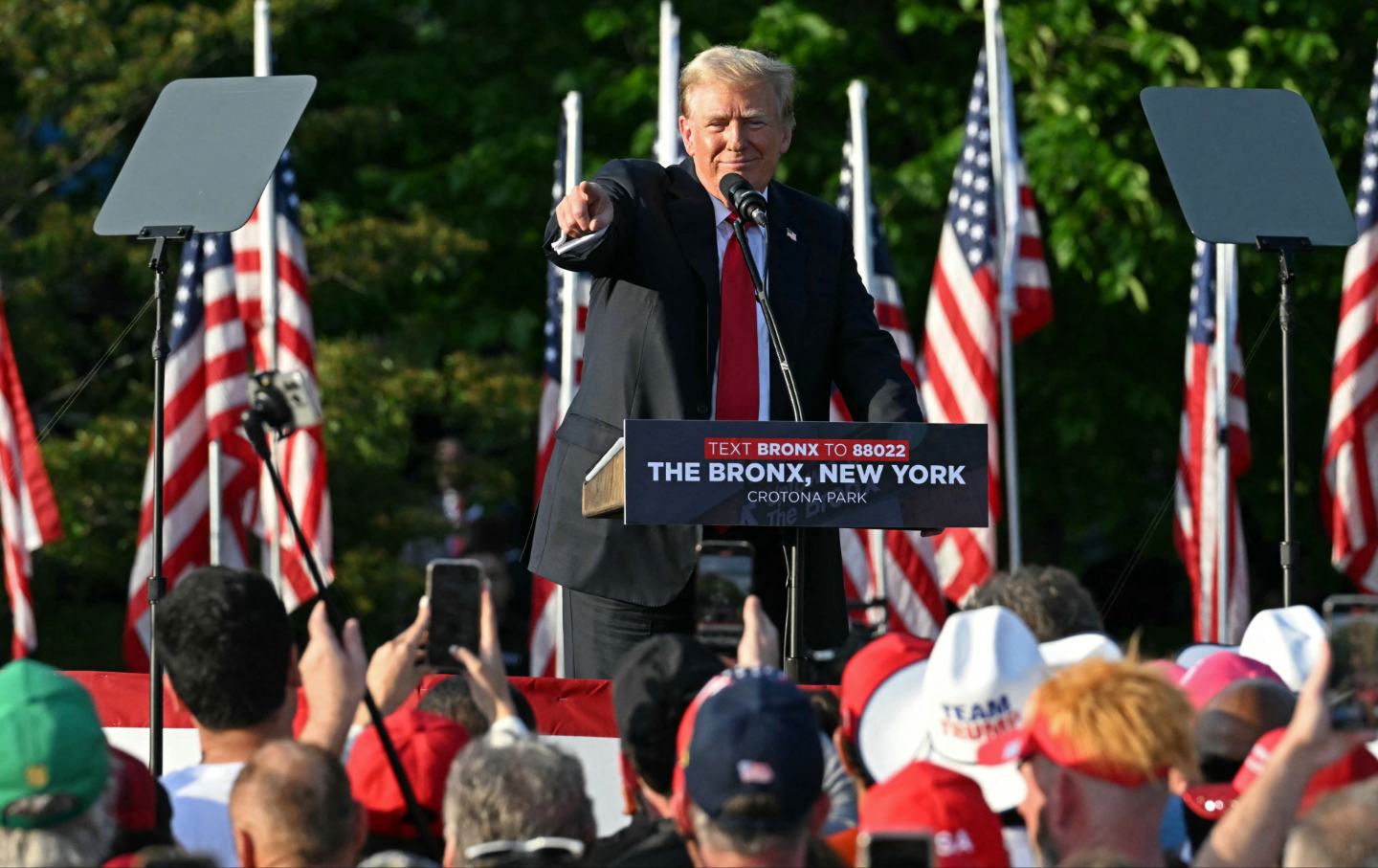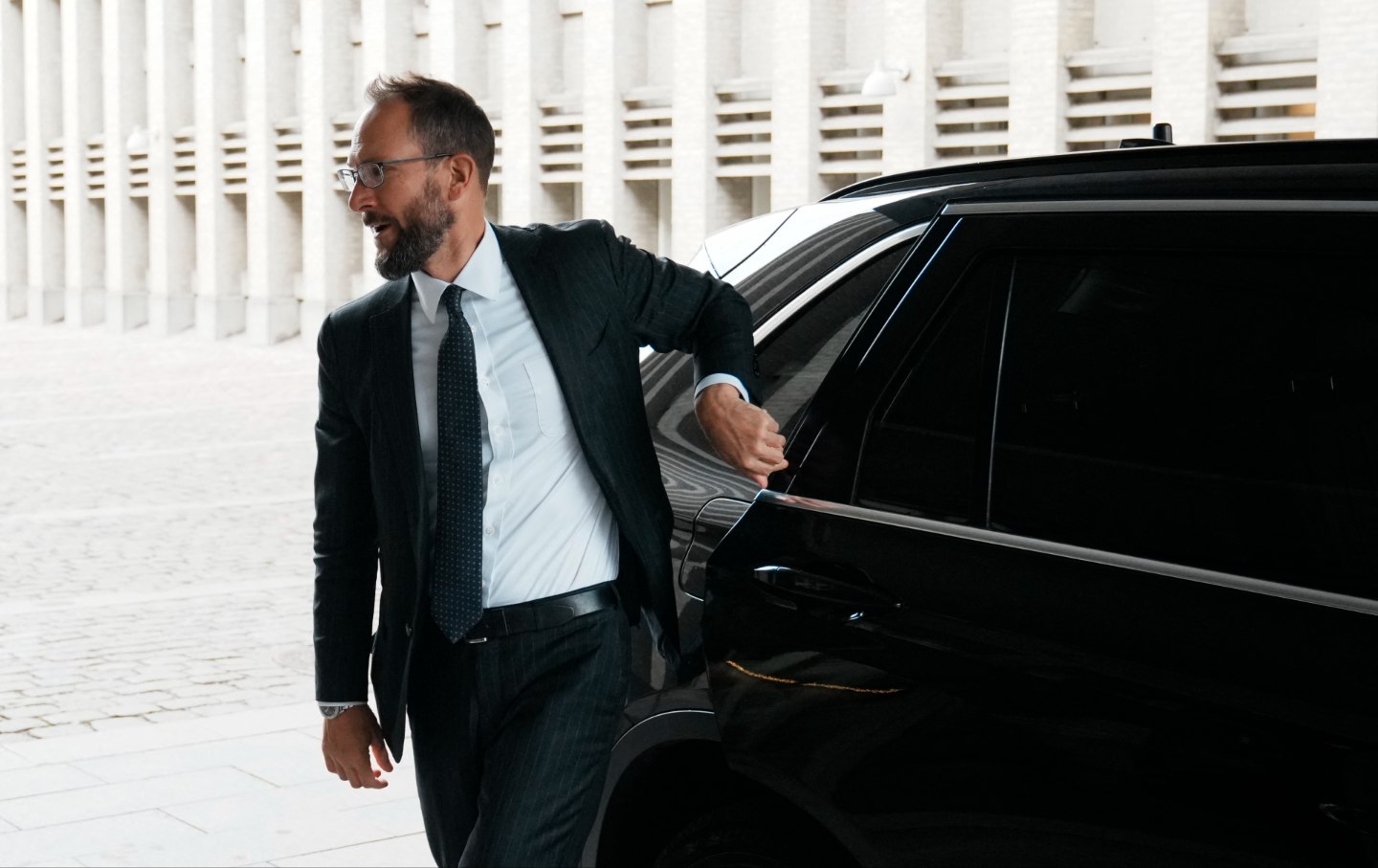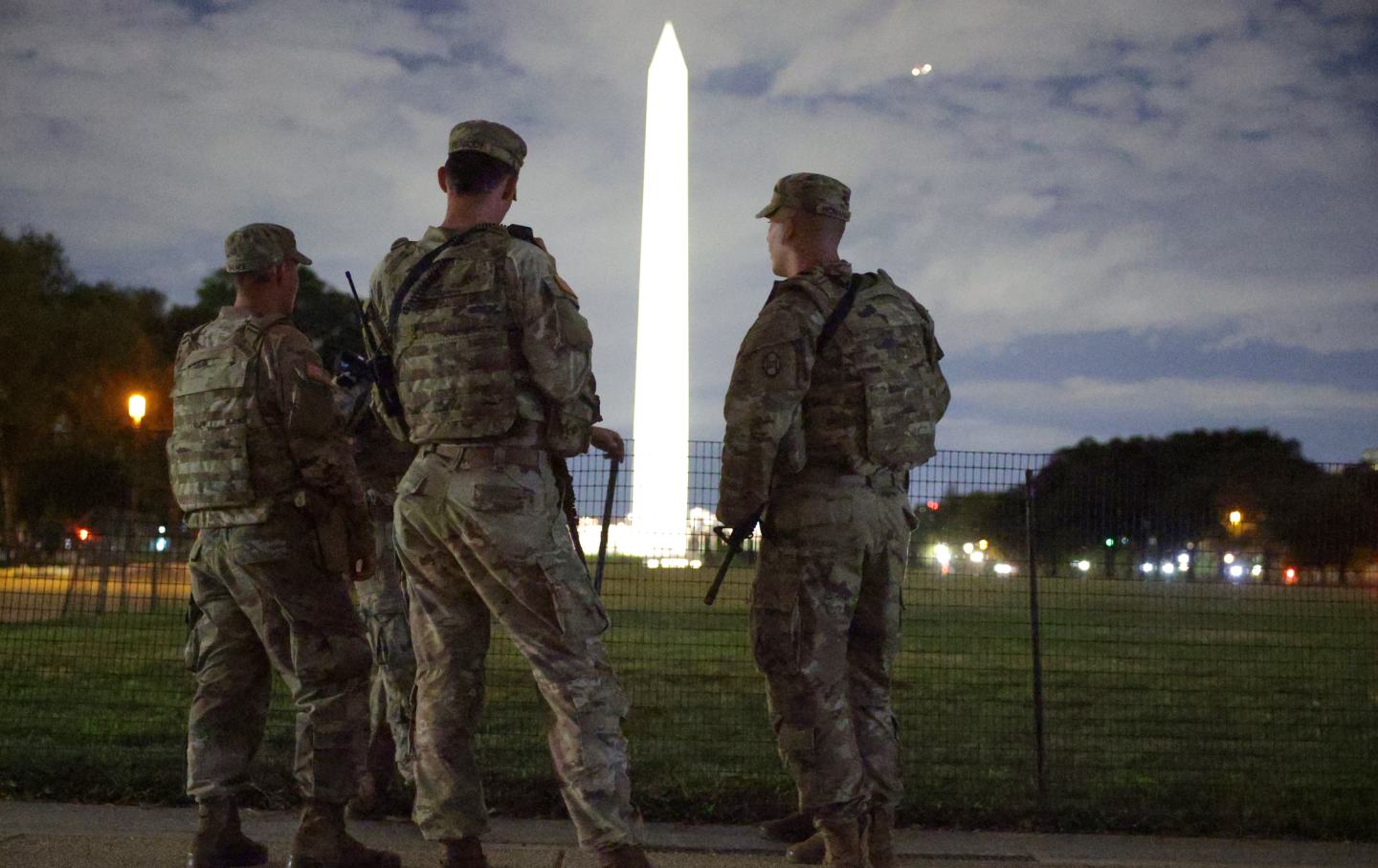And here’s how it can be done.
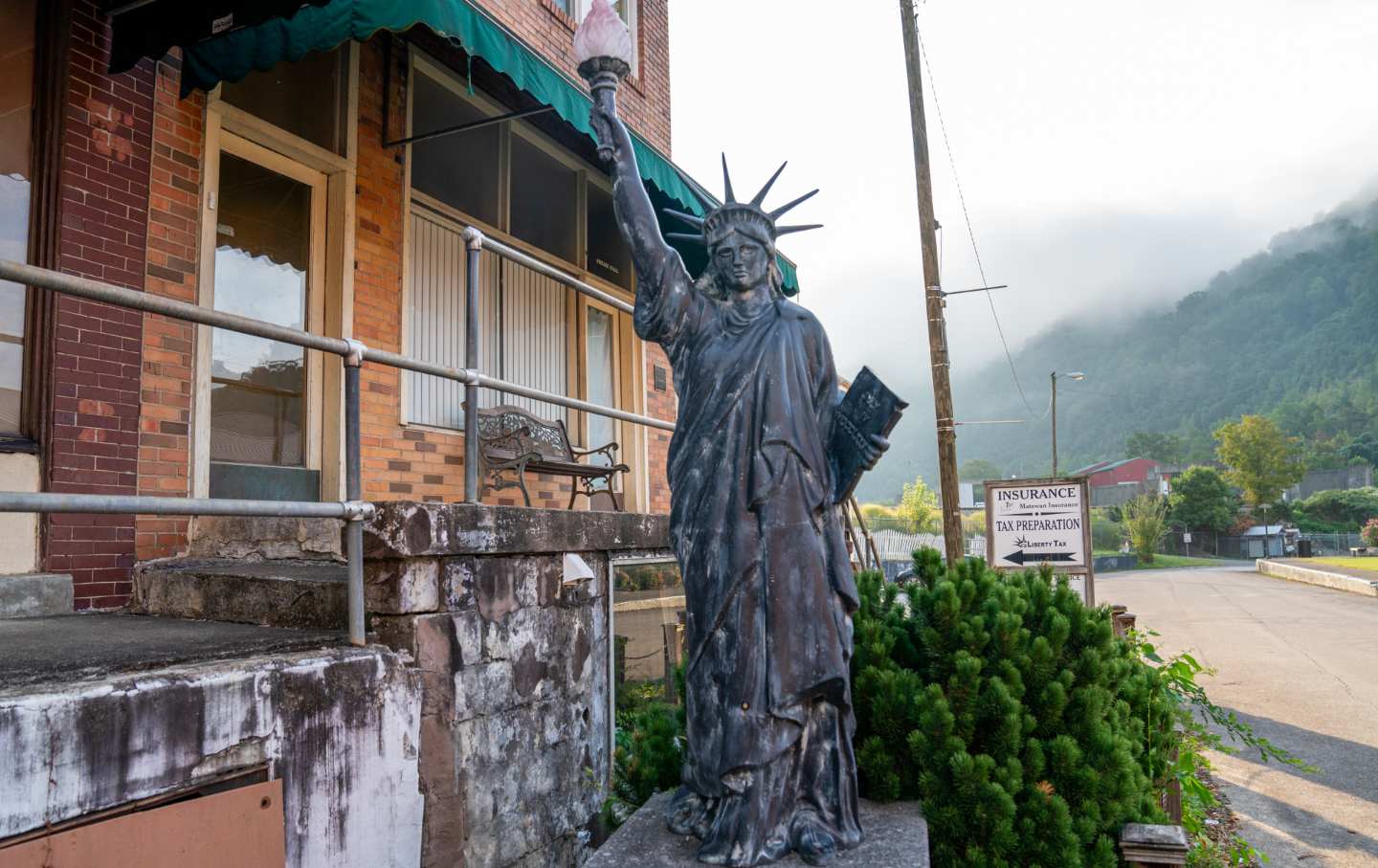
A model of the Statue of Liberty stands on a pedestal in Matewan, West Virginia.
(Robert Nickelsberg / Getty Images)
It was April of 2012 when I pulled into the restaurant parking lot in the tiny town of Lebanon, Virginia. I’d recently begun my campaign in the state’s Ninth Congressional District and the folks at the restaurant were there to see what I was about.
I recognized the fellow who greeted me as I got out of the car—a retired coal miner who had been to other campaign events we’d held. He was a union guy: United Mine Workers of America.
“What do you think about that bombshell Obama dropped on us?” he asked. Sensing that I wasn’t sure what he was referring to, he made it clear. “You know, gay marriage.” Then I remembered: President Obama had just come out for the legalization of same-sex marriage.
“What do you think about it?” I asked.
“It’s an abomination, the Bible says so. Marriage is between a man and woman. Anything else is unnatural, it’s wrong!” He was, as we say in these parts, convicted in his words.
“I hear you,” I replied. “I know that the idea seems a little odd to some folks. But the main thing I get from the Bible is that we’re supposed to love one another, especially people who are different from us, hard for us to love.” That’s all I said. He chewed on that for a moment and then replied, “I guess you’re right.” And then, after a bit more pondering, “Well, I suppose they’re just born that way anyway.”
This retired coal miner, influenced by a very conservative church and community, went from “homosexuality is an abomination” to “that’s just who they are and we should love them” in the span of a hundred-yard walk.
Why? In part because I listened to him and didn’t try to scold him. But more importantly, because he trusted me. He trusted me because he knew I’d been on the picket lines with the miners during their 1989–90 Pittston Coal strike, that I’d fought to improve black-lung rules for miners, and worked to create new jobs in his community. He trusted me because he believed I had his back, and that trust enabled him to reconsider a deeply held view.
This is what we on the left have lost: the trust of millions of rural and working-class people. Some of that has come from the relentless and dishonest narrative on right-wing media. Some of it is our own damn fault. But, either way, huge numbers of the people we need, not just to vote for us but to join us in taking this country back from Trump and the billionaires, deeply mistrust us. Reversing that mistrust is essential to everything else progressives seek to do.
There is much to applaud in the range of efforts to facilitate civil dialogue and build empathy. However, we’ve taken a different approach, one that puts action ahead of words.
Two years ago, the Rural Urban Bridge Initiative, which I cofounded with Erica Etelson, launched Community Works, or “CWorks,” in four rural, deeply red counties in Virginia. One year later, we initiated it in rural Georgia.
Our process was simple. We identified county Democratic committees that were struggling but interested in trying something different. We then worked with them to undertake regular, concrete, nonpolitical community work, side by side with civic groups, churches, veterans and senior citizen groups, local nonprofits, and, eventually, local elected officials. Local CWorks chapters, each affiliated with the county Democratic committee, do at least three community events per month, turning out dozens (or more) volunteers to solve local problems collaboratively with their neighbors.
Our goal? To test the idea that, if people worked side by side to address local needs, bit by bit, trust would be rebuilt. Democrats and liberals, working with independents and conservatives to pack food for the needy, pick up trash in the creek, fix a neighbor’s roof, install smoke alarms in trailers, and organize activities for kids. And much more. No proselytizing, no persuasion, no candidate buttons.
We’re barely two years in, but it is clearly working. The six CWorks chapters in Virginia and Georgia have held more than 500 local events, involving at least 200 collaborations with a wide range of civic and community organizations. According to CWorks national director, Meredith Dean, “Stuff is getting done, community is being rekindled, and people are feeling hope. We’ve also seen very positive impacts on the local Democratic committees themselves, many of which were previously discouraged. With the addition of CWorks, they’ve experienced a dramatic growth in energy, enthusiasm, and volunteers.”
Collaborative community problem solving efforts like Community Works are generating interest from people in many places. CWorks itself is rapidly expanding, with new chapters recently added in Minnesota, Alabama, Maryland, California, and elsewhere. For many on the left, particularly young people, there’s a hunger to do something concrete and constructive, rather than just fighting the bad stuff that never seems to stop. Could collective local action, done collaboratively and intentionally with folks “on the other side” save us from Donald Trump? We don’t know the answer just yet. But it is clear that when we stop trying to convince people that they’re wrong and start working together to fix things, we build trust.
Popular
“swipe left below to view more authors”Swipe →
Trust is a prerequisite to persuasion. It can also, we have found, be a generator of enthusiasm and activism.
Kenya Adams’s involvement with the Jenkins County, Georgia CW chapter helped her “become much more aware of the needs in our area. Many young adults are in a state of “IDK, IDC”[I Don’t Know, I Don’t Care], totally disengaged. But working with CWorks motivated me to join my local Democratic Committee and become president of our first-ever Young Dems chapter.”
We’ve seen how nonpolitical work leads people to political involvement. Shanelle Carr, also in Georgia, describes herself as “one of those people who sat on the couch and complained.” But after experiencing the power of local community work, “everything changed for me. I started attending our School Board and Town Council meetings.” Community Works, she said, “set a fire in me to become more engaged and active in my community.”
This strategy is helping revitalize local Democratic committees in rural, red areas. But is it helping overcome the overwhelmingly negative views of Democrats? Anecdotally, at least, the evidence for this is strong and growing. Heather Vaughn who leads the CWorks chapter for the Scott County, Virginia Democrats says that their events increasingly are “in response to other groups or individuals asking us for assistance. At this point, people know who we, they know they can count on us and they trust us to help.”
In a county where fewer than 20 percent of people voted for the Democratic ticket in 2024, that’s significant.
The Page County Democrats CWorks chapter has been among the most active and successful thus far. With their dazzling track record of getting things done, the community—again, overwhelmingly red—has come to see them in a very different light, extending even to the Republican-controlled county Board of Supervisors. They’ve moved from skepticism of this Democratic initiative to now actively working to support and partner with the CWorks chapter.
As one of the Page County volunteers, Bob Richey put it, “Community Works is bridging a political divide that I didn’t think was bridgeable.”
In this moment of crisis, we need a unified, progressive opposition to Donald Trump.
We’re starting to see one take shape in the streets and at ballot boxes across the country: from New York City mayoral candidate Zohran Mamdani’s campaign focused on affordability, to communities protecting their neighbors from ICE, to the senators opposing arms shipments to Israel.
The Democratic Party has an urgent choice to make: Will it embrace a politics that is principled and popular, or will it continue to insist on losing elections with the out-of-touch elites and consultants that got us here?
At The Nation, we know which side we’re on. Every day, we make the case for a more democratic and equal world by championing progressive leaders, lifting up movements fighting for justice, and exposing the oligarchs and corporations profiting at the expense of us all. Our independent journalism informs and empowers progressives across the country and helps bring this politics to new readers ready to join the fight.
We need your help to continue this work. Will you donate to support The Nation’s independent journalism? Every contribution goes to our award-winning reporting, analysis, and commentary.
Thank you for helping us take on Trump and build the just society we know is possible.
Sincerely,
Bhaskar Sunkara
President, The Nation
More from The Nation
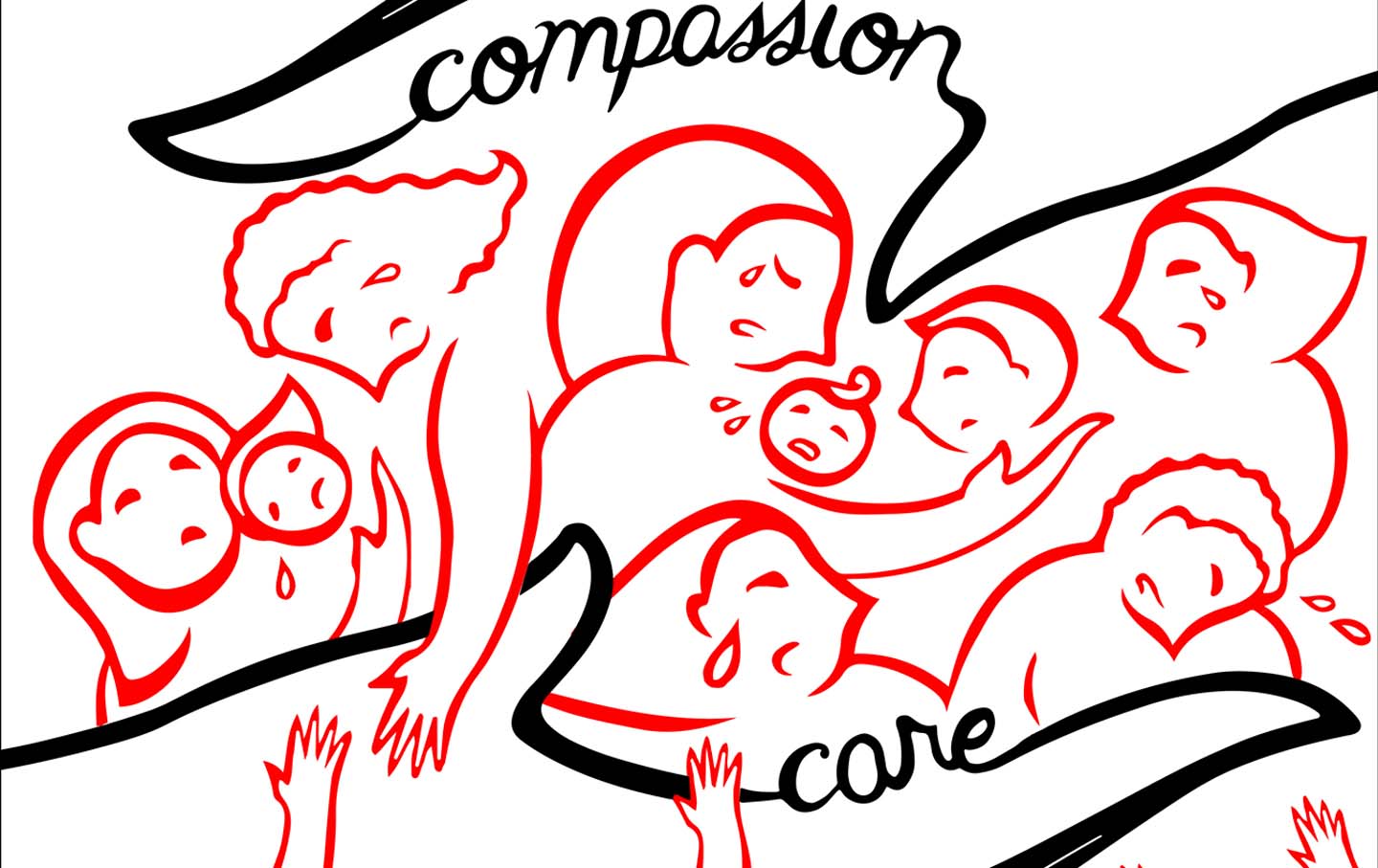
Every day, the genocide in Gaza, armed conflicts, displacement, and starvation result in millions of victims and refugees around the world.
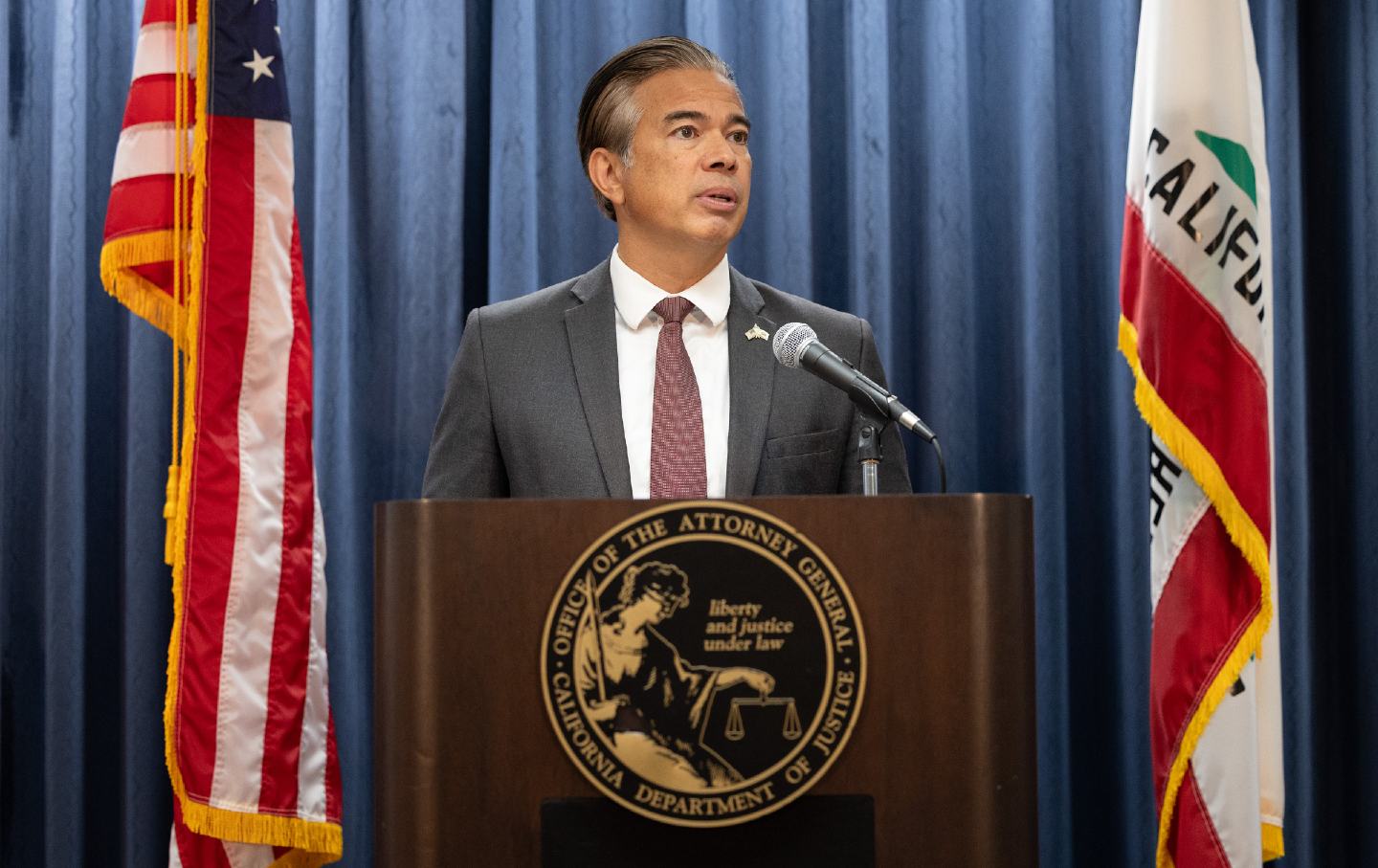
Rob Bonta, California’s attorney general, is using the courts to rein in Trump and, for now, it’s mostly working.
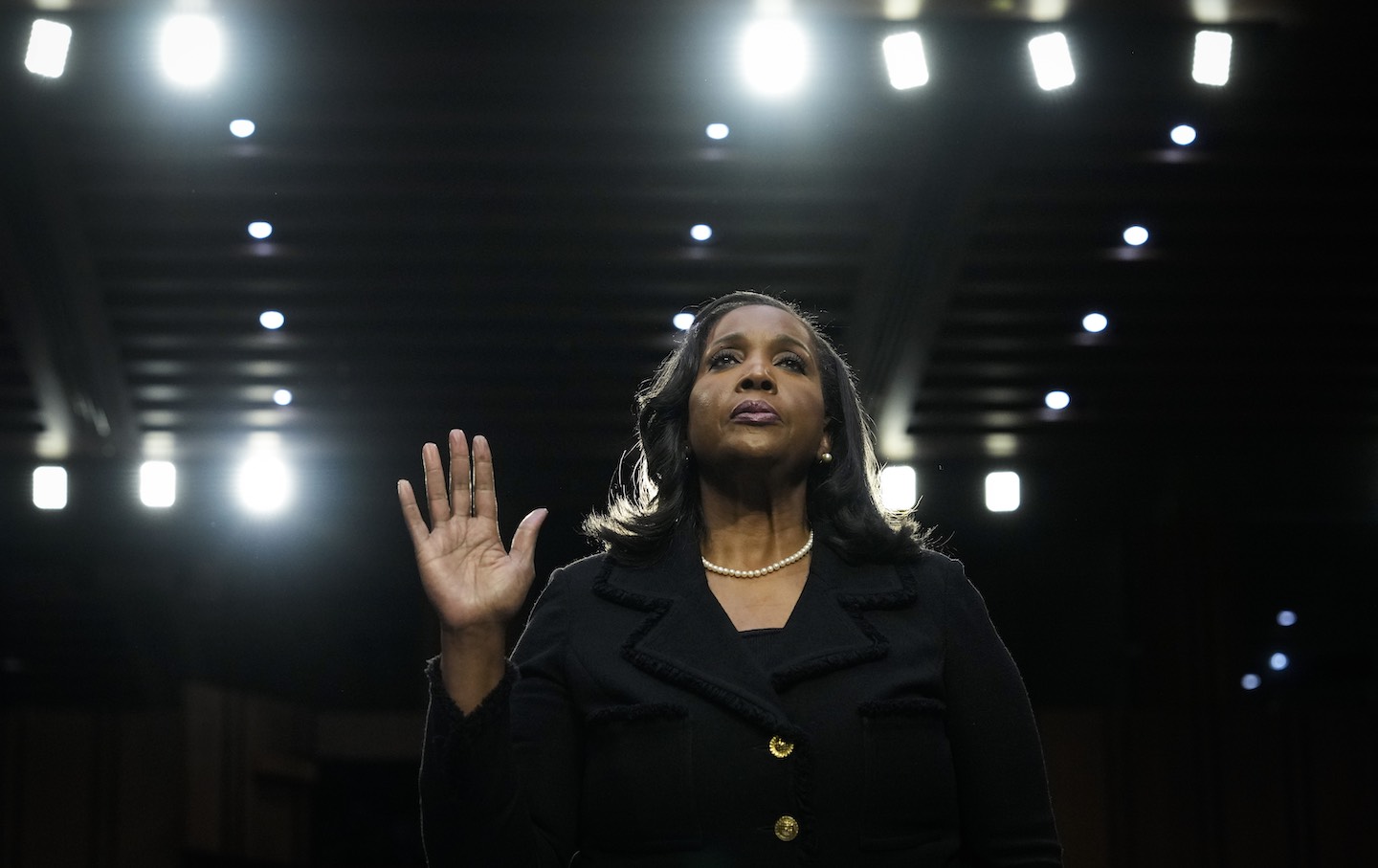
The president’s targeting the Federal Reserve governor over a technicality is blatantly politically motivated.
